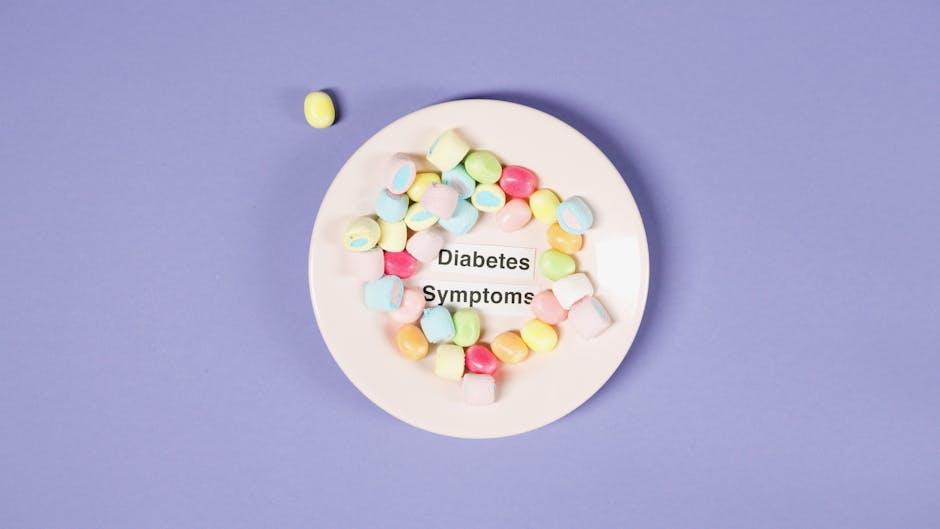In the quest for a healthier lifestyle, sugar has often found itself cast as the villain in our dietary narratives. From whispered warnings at dinner parties to the bold headlines of health magazines, reducing sugar intake has become a rallying cry for those seeking improved well-being. Yet, amidst the clamor, an intriguing question emerges: Is cutting back on sugar truly the silver bullet for better health, or merely a single piece of a far more complex puzzle? As we delve into the nuanced world of nutrition and wellness, this article seeks to unravel the layers of this sweet conundrum, exploring whether a sugar reduction is the panacea it is often proclaimed to be, or if other factors deserve equal consideration in our pursuit of health.
Exploring the Sweet Truth: Beyond Sugar Reduction
In our quest for better health, the spotlight often shines brightly on reducing sugar intake. While cutting back on sugar is undoubtedly a step in the right direction, the path to wellness involves a deeper exploration. Nutritional balance and mindful eating are essential components of a holistic approach. It’s not just about what we eliminate but what we add to our diets that truly matters. Embracing whole foods, rich in nutrients and fiber, can help stabilize blood sugar levels and promote sustained energy.
- Incorporate more whole grains, fruits, and vegetables - These foods are not only low in sugar but also provide essential vitamins and minerals.
- Focus on healthy fats - Avocados, nuts, and seeds offer beneficial fats that support heart health and satiety.
- Choose lean proteins - Such as fish, poultry, and legumes, to build and repair tissues without added sugars.
Additionally, understanding the role of sugar alternatives and their effects on our health is crucial. While they can be a useful tool, they are not a magic bullet. Cultivating a balanced diet and a healthy relationship with food is key to achieving long-term wellness. By looking beyond mere sugar reduction, we can embark on a more comprehensive journey towards optimal health.

The Hidden Culprits: Understanding Other Dietary Villains
While sugar often takes center stage as a dietary antagonist, it’s not the only player in the field of nutritional pitfalls. Unveiling the less obvious dietary foes can shed light on why a simple reduction in sugar might not be the panacea for all health issues. Refined carbohydrates, for instance, may fly under the radar but can wreak havoc on your health just as sugar does. These sneaky saboteurs, found in foods like white bread and pasta, can cause blood sugar spikes and contribute to insulin resistance.
Moreover, trans fats—often lurking in processed snacks and baked goods—pose a significant threat to cardiovascular health. Their insidious nature often goes unnoticed due to misleading labels like “partially hydrogenated oils.” Similarly, excessive sodium can be a stealthy adversary, leading to hypertension and heart problems. It’s hidden in many processed foods, making it difficult to keep consumption in check. To truly embark on a journey toward better health, one must consider these hidden dietary culprits:
- Refined Carbohydrates: Often masked as “healthy” grains.
- Trans Fats: Look for “hydrogenated” in ingredient lists.
- Sodium: Present in high amounts in processed foods.
- Artificial Additives: Found in many low-fat or diet products.

Lifestyle Overhaul: Integrating Holistic Health Practices
In our quest for optimal well-being, the focus often narrows down to dietary changes, with sugar reduction taking center stage. However, a true lifestyle transformation requires a more comprehensive approach. Embracing holistic health practices can create a profound impact on your overall vitality. This means integrating not just dietary changes but also nurturing your mind, body, and spirit through a balanced lifestyle.
Consider these key elements to complement your dietary adjustments:
- Mindful Movement: Engage in activities that promote both physical and mental harmony, such as yoga, tai chi, or even a brisk walk in nature.
- Restorative Sleep: Prioritize quality sleep by creating a calming bedtime routine and optimizing your sleep environment.
- Stress Management: Incorporate practices like meditation, deep breathing, or journaling to cultivate inner peace and resilience.
- Connection and Community: Foster relationships and engage in social activities that nurture your emotional well-being.
By weaving these holistic practices into your daily life, you create a foundation for enduring health and vitality that extends far beyond the simple act of reducing sugar.

Practical Steps: Crafting a Balanced and Sustainable Diet
When it comes to embracing a healthier lifestyle, focusing solely on reducing sugar intake is just the beginning. A truly balanced and sustainable diet involves a holistic approach that considers a variety of nutritional factors. Here are some practical steps to help you craft a diet that nourishes both body and mind:
- Embrace Variety: Incorporate a rainbow of fruits and vegetables into your meals. Each color represents different nutrients, offering a broad spectrum of vitamins and minerals essential for optimal health.
- Prioritize Whole Foods: Opt for unprocessed and minimally processed foods. Whole grains, lean proteins, and healthy fats should be the foundation of your meals, providing sustained energy and satiety.
- Mindful Eating: Pay attention to your body’s hunger cues and practice portion control. Eating mindfully not only aids digestion but also enhances your relationship with food.
- Hydration is Key: Keep yourself well-hydrated by drinking plenty of water throughout the day. Adequate hydration supports metabolic processes and helps maintain energy levels.
By integrating these steps into your daily routine, you’ll be on your way to developing a diet that supports long-term health and well-being. Remember, balance and sustainability are the cornerstones of any successful dietary journey.
Closing Remarks
As we close the chapter on our exploration of sugar reduction and its role in the tapestry of health, it’s clear that the journey towards well-being is as nuanced as it is personal. Reducing sugar is a step, a single thread woven into the complex fabric of our daily lives, where balance, moderation, and mindful choices are key. Whether it’s a small change in your morning coffee or a conscious decision at the grocery store, every action contributes to the broader picture of health. Yet, the narrative doesn’t end here; it’s an ongoing story, inviting us to delve deeper, ask questions, and seek harmony in our dietary choices. As we move forward, let us embrace the broader spectrum of wellness, acknowledging that the path to better health is as diverse as the individuals who walk it.


































